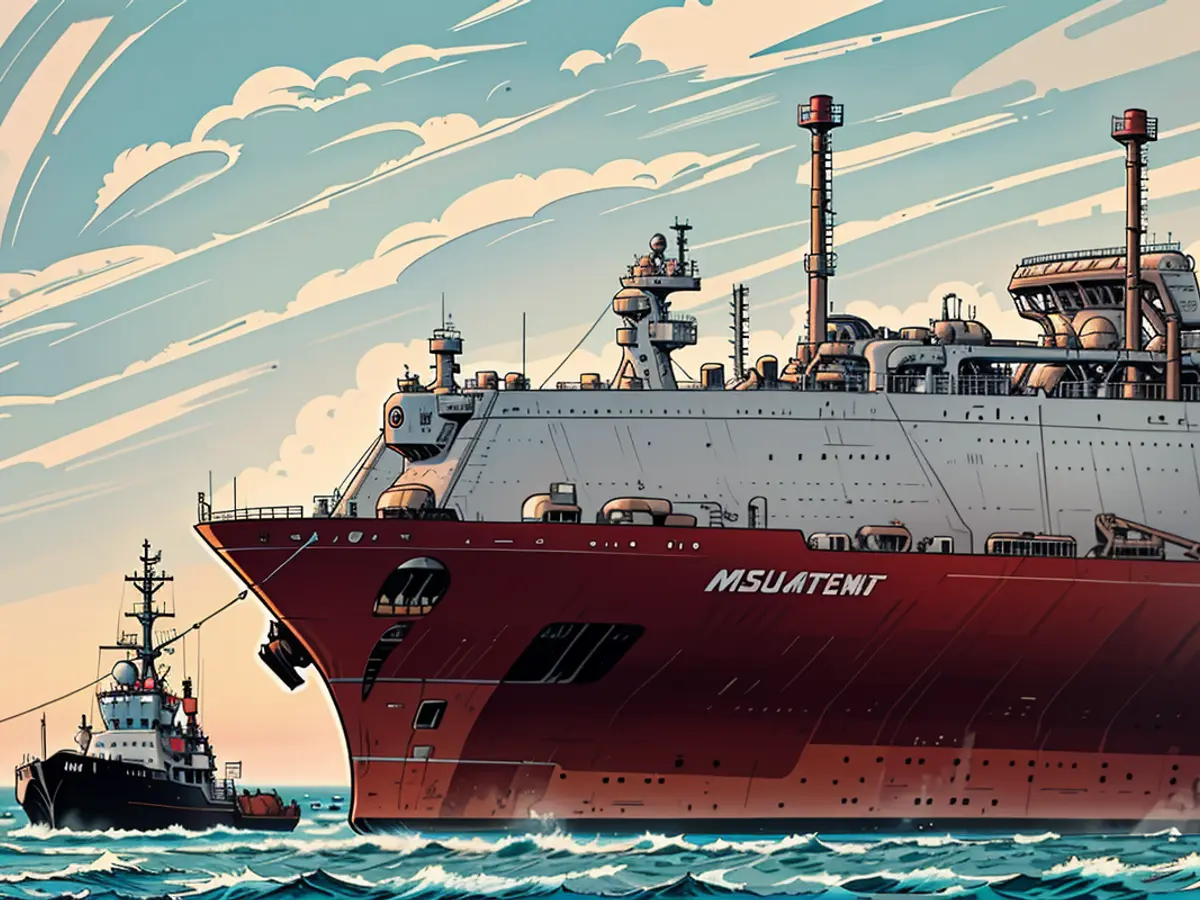The bustling port of Mukran on the German Baltic Sea welcomed an LNG behemoth, the "Hellas Diana," recently. This 300-meter long vessel, sailing under the Maltese flag, had traversed from Freeport, Texas, as per Marine Traffic's tracking system. This delivery marked a continuation of the trials at the "German Baltic Sea" energy terminal, operated by Deutsche Regas.
Rügen, the enchanting island in the scene, boasts LNG offloading capabilities thanks to the FSRUs, "Energos Power" and "Neptune." Once transformed into gas, this LNG is integrated into Germany's gas network through a natural gas connection line, leading to Lubmin. Deutsche Regas aims to process an impressive 13.5 billion cubic meters of gas annually, which equates to approximately 15% of the nation's total gas consumption.
Germany built this terminal, largely focused on tourism on Rügen's Baltic coast, under the LNG Acceleration Act. However, experts have started questioning the imminence of a gas shortage, a common reason cited for constructing such specialized gas tanker terminals. Despite the halt in gas supplies from Russia, Germany continues to receive the bulk of its natural gas via pipelines, primarily from Norway, the Netherlands, and Belgium. LNG accounts for less than ten percent of Germany's total gas imports, according to industry data.
Critics, including the German Environmental Aid (DUH), have labeled the project an "expensive and unnecessary financial blow."
Insights:
The Mukran LNG terminal, operated by Deutsche ReGas, has a regasification capacity of 13.5 billion cubic meters (bcm) per year, making it a significant contributor to Germany's natural gas supply. The terminal operates two floating storage and regasification units (FSRUs): the Energos Power FSRU, which has been terminated due to pricing disputes, and the operational Neptune FSRU. Germany receives LNG imports via the terminal, contributing 8.5 terawatt hours to the country's total LNG imports in 2024.
However, the terminal's operations are facing challenges, including pricing disputes and the reliance on short-term spot market volumes from American sources. These issues put it at a disadvantage compared to terminals in neighboring countries, which generally book long-term capacity arrangements more cost-effectively.








